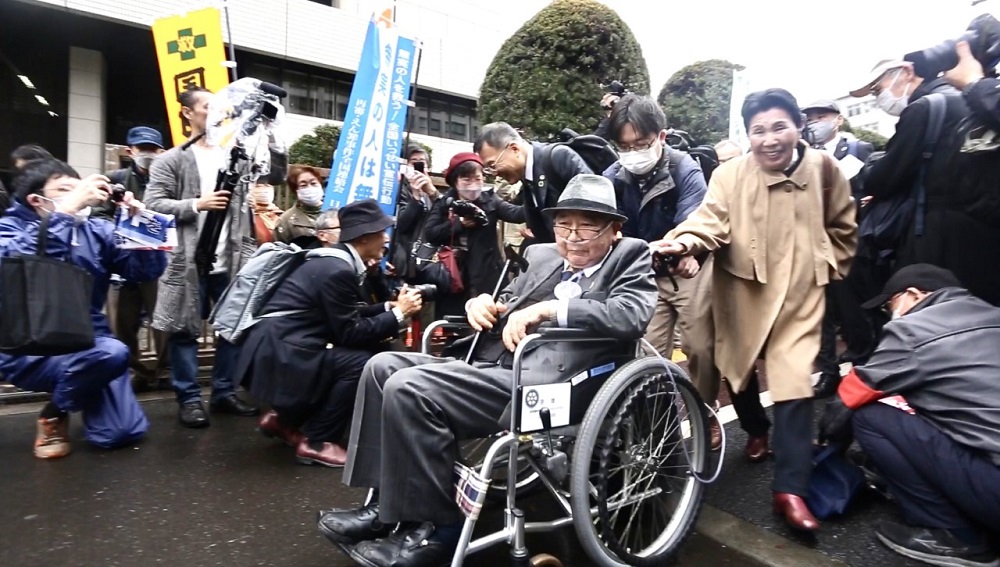
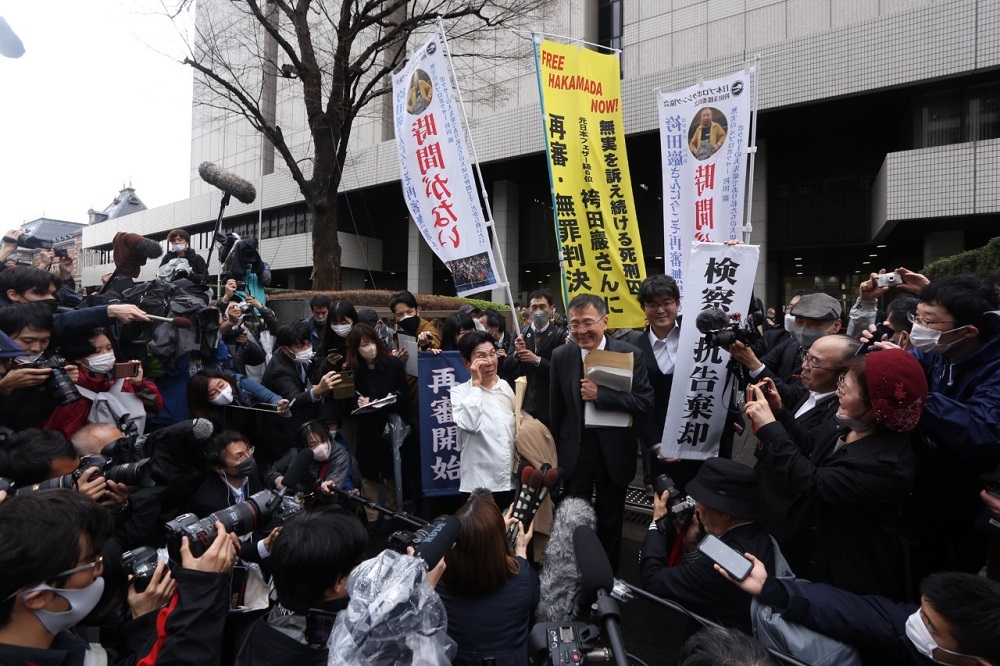
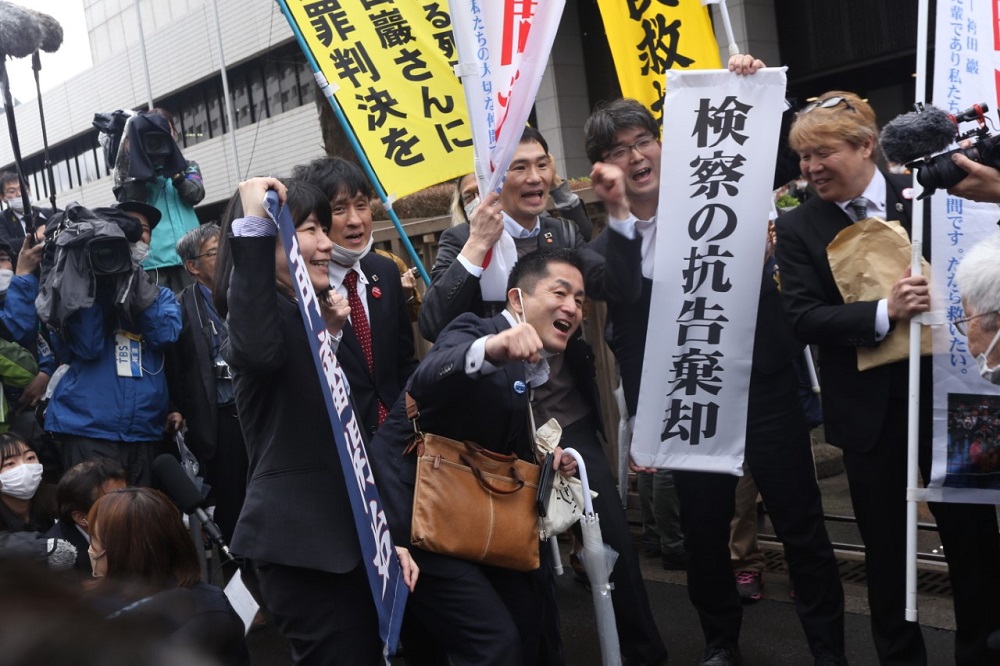
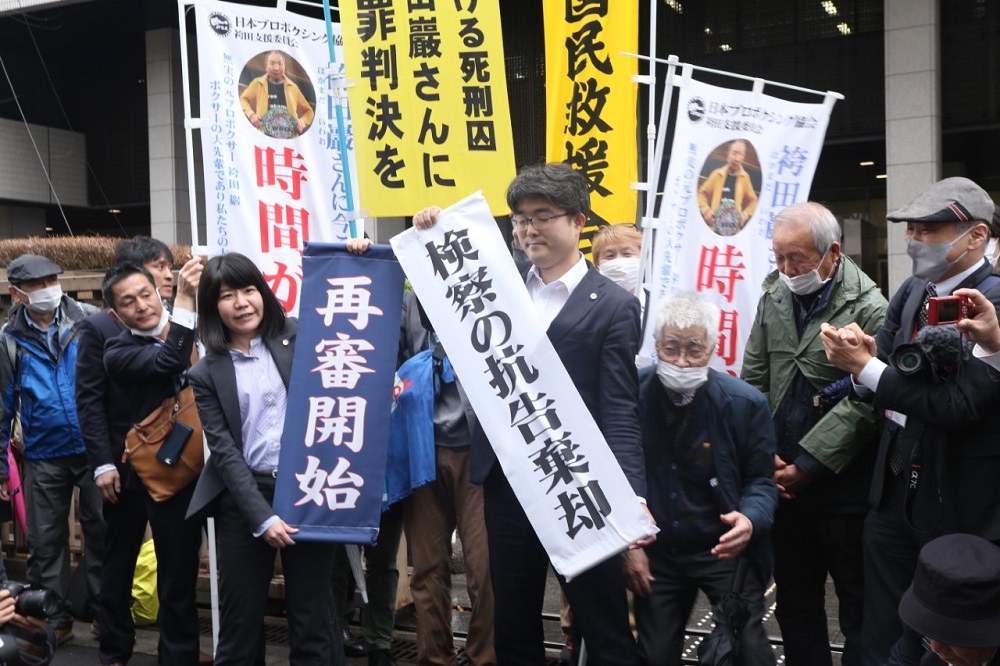
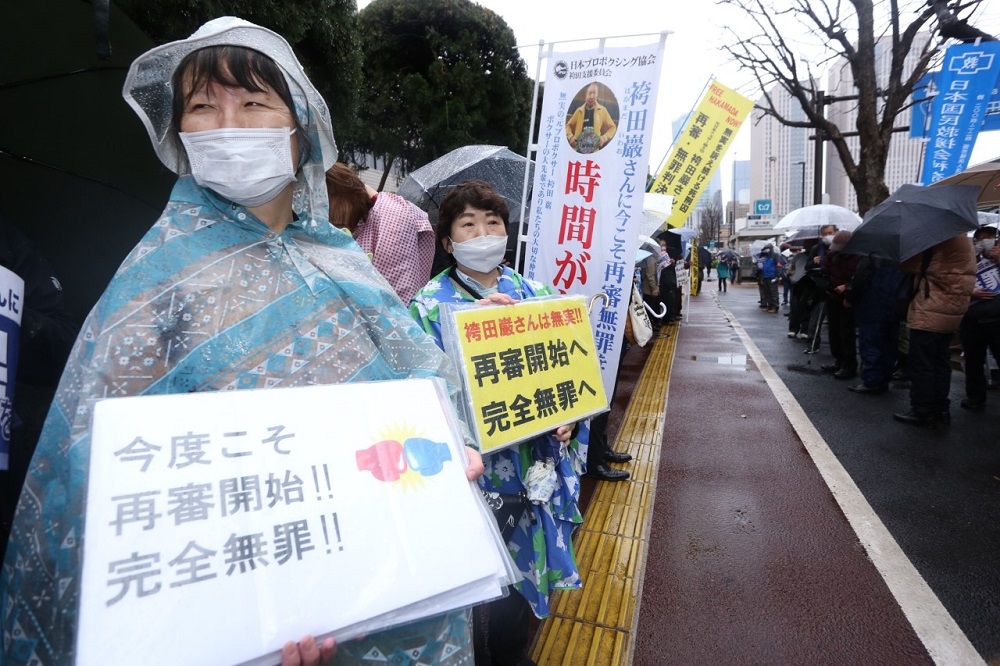





TOKYO: Tokyo’s High Court ordered a retrial on Monday for an 87-year-old former boxer, dubbed the world’s longest-serving death row inmate, nearly six decades after he was convicted of murder.
Lawyers for Iwao Hakamada left the court after a brief session and unfurled banners reading “retrial” as supporters shouted “Free Hakamada now.”
“I was waiting for this day for 57 years and it has come,” said Hakamada’s sister Hideko, who has campaigned tirelessly on her brother’s behalf.
Hakamada spent nearly five decades on death row and was certified the world’s longest-serving death row inmate, before a lower court ordered a retrial and freed him while his case proceeded.
He was sentenced to death in 1968 for robbing and murdering his boss, the man’s wife and their two teenage children.
He initially denied the accusations but later confessed after what he subsequently claimed was a brutal police interrogation that included beatings.
His attempts to retract the confession were in vain and his verdict was confirmed by the Supreme Court in 1980.
A district court in the central city of Shizuoka granted a retrial in 2014, finding investigators could have planted evidence.
But Tokyo’s High Court overturned the lower court ruling four years later, and the case was sent to the Supreme Court on appeal.
There, judges ruled in 2020 that the Tokyo High Court must reconsider its decision.
One key piece of evidence used to convict him was a set of blood-stained clothes that emerged more than a year after the crime.
Supporters say the clothes did not fit him and the bloodstains were too vivid given the time elapsed.
DNA tests found no link between Hakamada, the clothes and the blood but the high court rejected the testing methods.
Japan is the only major industrialised democracy other than the United States to retain capital punishment, which still enjoys broad public support. Debate on the issue is rare.
Supporters say nearly 50 years of detention, mostly in solitary confinement with the ever-present threat of execution looming over him, took a heavy toll on Hakamada’s mental health.
He told AFP in 2018 he felt he was “fighting a bout every day.”
AFP